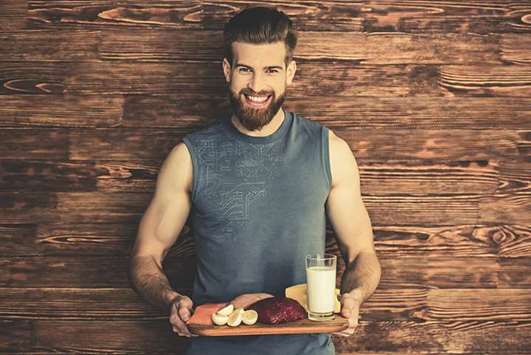Good doctor, good medicine and good nutrition. Good thing my horse, Cal, had all three after suffering a nasty gash to his leg a few weeks ago.
“He’s lucky,” two family veterinarians assured me after cleaning and doctor ring his wound. “No tendons were cut. But you’ll need to apply medicine to the wound twice a day until it heals.”
I was sceptical that the gaping lesion in Cal’s leg would ever get better. But after the first week –- and a little extra nutrition – I noticed the layers of his skin coming back together.
Whether man or beast, the art of repairing living tissue requires the proper mixture of rebuilding materials ... and a strong immune system to fight off bacteria that interfere with healing. Nutrients in our food supply those ingredients. Here are some of what the doctor (and the nutritionist) ordered:
l Adequate calories. Healing of wounds requires extra energy (or calories) to fuel the work of healing. Normally Cal gets enough energy from the pasture he grazes. Since his injury, he’s also getting a little extra grain along with his horse supplement.
l Extra protein. Depending on the severity of the wound, the need for extra protein in humans can exceed normal requirements by 20 to 200%. Besides providing the material that knits us back together, protein forms our immune system – the body’s defence against infections. Sources of high quality protein include eggs, soy, milk, yogurt, meat, fish and poultry.
l Protein is made from amino acids – the building blocks of new tissue construction. One such amino acid is arginine which may enhance wound healing, according to some studies. High amounts of arginine are found in poultry, pork, soy foods, peanuts and pumpkin seeds.
l Vitamin C. Horses can make their own vitamin C. Not so with humans. We need a daily supply of this water-soluble vitamin, especially when we have an injury. Vitamin C helps make collagen and other connective tissues that knit the body back together. Good food sources include oranges and other citrus fruits, peppers, tomatoes, strawberries, cantaloupe and kiwi.
l Zinc. Proteins in the body that restore our tissues rely on zinc to function. Wounds don’t heal well when zinc is deficient, say nutrition experts. Meat and seafood supply most of the zinc in our American diet. Other sources include beans, nuts, whole grains, and fortified breakfast cereals.
l Omega-three fats found in fish oils have been shown to have a “profound effect on wound healing and infections” according to a review on this topic in the medical journal, Advances in Wound Care. Best sources of these fats are dark-fleshed cold water fish such as salmon and sardines. Products fortified with DHA and EPA (the more potent forms of omega-3 fats) are also good sources.
Today when I checked on him, Cal easily galloped in from the pasture with his buddies. Amazing how the body can knit itself back together with the right ingredients. - Tribune News Service

Wounds don’t heal well when zinc is deficient, say nutrition experts. Meat and seafood supply most of the zinc in our diet. Other sources include beans, nuts, whole grains and fortified breakfast cereals.
